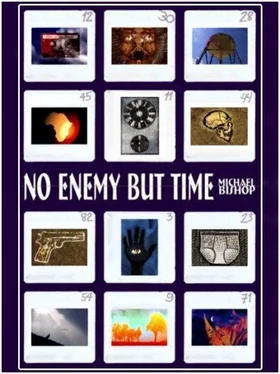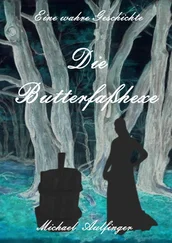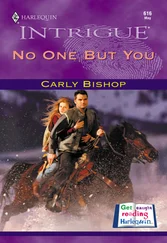Helen sidled near.
Into my hand she placed a collop of antelope meat. I accepted this and looked into her eyes, which were red-rimmed and haggard—but beautiful for all that. Then I cast a glance at my slaughtered prey, the antelope, and a reminiscent queasiness flooded through me. (Bambi.) Embarrassed, memory-choked, I averted my head and closed my eyes.
Cheyenne, Wyoming
1969-70
Hugowas stationed at Francis E. Warren Air Force Base, and Jeannette, who had refrained from seeking salaried employment while Anna and John-John were preschoolers, had recently taken a part-time position as a feature writer for a local newspaper, the Herald-Plainsman . Hugo did not approve of her working, but because the money she earned was genuinely useful, at times almost a godsend, she had no intention of sacrificing her job to his wounded machismo. Besides, she enjoyed writing for the paper, even if Hugo, ambiguously tongue-in-cheek, would sometimes acknowledge one of her columns by crooning, Caruso-fashion, “Hark, the Herald-Plainsman sings…”
The Griers, from whom the Monegals had been renting their remodeled basement apartment for nearly three years, were a saltily robust couple in late middle age. They lived directly overhead, but with a porch entrance set regally above the sunken, half-hidden door by which the Monegals must go in and out. The house itself was a mint-green stucco affair with dark-green shutters. Pete Grier did the heavy yard work, while his wife Lily took care of the decorative gardening about the porch. They were decidedly idiosyncratic people, but the Monegals had almost come to regard them as family.
Lily Grier, a woman of Slavic extraction, wore her iron-gray hair in bangs and her lower body in heavy, pleated trousers. Her face had the off-white color and the noncommittal expression of a frozen Swanson’s chicken pot pie—except when she smiled, for her teeth, all her own, were beautiful. She had been raised on a cattle ranch in Colorado, and her favorite interjections were “shit” and “goddamn.”
Nevertheless, the presentation of an unexpected gift or a stray kitten’s mewlings would reduce her to tears. She was taller than Hugo, and weighed more, and had an abiding, paranoid faith that Pete took advantage of every trip to the drugstore or the post office to cheat on her. If that were so, Hugo told Jeannette, Pete undoubtedly packed the Fastest Gun in the West.
A whip-thin, red-haired man with forearms like Popeye’s and the beginnings of a paunch under his belt, Pete had made his living driving heavy machinery. He still owned a small yellow bulldozer, which he kept in a collapsing wooden shed in the tiny backyard. Two or three times a year, at some rancher’s request, he would dig a cattle pond or a drainage ditch, demanding his payment in cash to avoid having to mention the transaction on his income-tax forms. At the same time, however, he was an avid defender of his country’s greatness, a patriot. The American military was the world’s last best hope for the defeat and eradication of communism. Both he and Lily regarded the deployment around Cheyenne of intercontinental ballistic missiles in underground silos as tangible proof of their own and their neighbors’ faith.
Indeed, the Griers’ unflinching patriotism—at least in defense-related matters—had probably contributed to their readiness to rent to the Monegals. Hugo, after all, was a man with a dubious accent, and John-John’s complexion suggested the radical politics of Huey Newton, Eldridge Cleaver, and H. Rap Brown. Fortunately, he was only five when the Monegals moved from Van Luna, Kansas, to Cheyenne. Even at that age, though, the boy was beginning to realize that the Griers were the sort of people who sometimes, with sinister innocence, sprinkled their private conversations with racial epithets.
But Hugo, house hunting in the autumn of 1967, had won them over with his Latin charm and military bearing, and they had taken pity on his need. The upstairs/downstairs arrangement proved workable from the start, and neither family regretted its association with the other.
* * *
At the end of July, at the height of Wyoming’s arid, short-lived summer, no one could escape the aura of blossoming spectacle attendant upon the coming of Cheyenne Frontier Days, a Wild West festival of parades, honky-tonking, and butt-busting rodeo events, all seemingly sanctified by the fragrance of fresh manure. It would be a long winter, and no one wanted to greet it without having celebrated as fiercely as possible the rollicking High Noon of July.
This year Jeannette’s parents, Bill and Peggy, flew in from Wichita to experience a portion of the flapdoodle with the Monegals. Besides, it had been nearly two years since they had seen their grandchildren. Pete and Lily put the Rivenbarks in a tiny guest bedroom upstairs, and Jeannette was startled by how well the two couples got along. Peggy, after all, hated bad language and shrank from those who used it; she had fallen away from churchgoing of late, but she still prayed silently several times a day and demanded a heartfelt grace before every meal. Without much diluting the cattle-ranch flavor of her speech, however, Lily endeared herself to Jeannette’s mother by her exuberance and her unstinting hospitality. Bill and Pete, meanwhile, hit it off like old World War II buddies. In fact, they had both been Navy men, Bill a sailor aboard the U.S.S. Saratoga and Pete a Seabee in the South Pacific. Within only two or three days the couples had cemented a gratifyingly cozy relationship. Privately, Peggy told Jeannette that once she and Bill returned to Van Luna, she would rest easier knowing that her children and grandchildren were under the wing of people as big-hearted and caring as the Griers.
No one could deny that Pete, as well as Lily, was going out of his way to insure that both their downstairs tenants and their upstairs guests enjoyed Frontier Days to the fullest. He gave the Rivenbarks free rodeo tickets and made arrangements with a friend in a local men’s civic club for Anna and John-John to be in the parade that traditionally opened the festivities. The parade’s hallmark was the passing in procession of nearly every sort of transportation that the early pioneers had used in traversing or settling the Great Plains: horses, covered wagons, traps and buggies, steam-driven locomotives, old-timey automobiles, and so on. Pete himself had not attended a parade in four or five years, but he would certainly go to see how the young Monegals fared if they chose to accept his friend’s invitation.
“What do we have to do?” Anna asked.
“Just ride,” Pete told her. “Just ride, honey.”
* * *
On the morning of the parade Anna was assigned to the front seat of a remodeled Stanley Steamer, a replica of the 1906 automobile whose top speed was nearly thirty miles per hour. Dressed in her frilly Sunday-school best, Anna waved to the crowd as her goggled and dust-coated driver eased the old vehicle along the tree-lined avenues not far from the city hall.
John-John rode on a Plains Indian travois behind a spotted pony surmounted by a dark-haired man in buckskins who said he was Richard Standing Elk, a Cheyenne now living in Portland, Oregon.
According to Pete, he managed a small Ford dealership there. Richard Standing Elk’s impatient pony had to clop-clop along at the pace of the parade.
Immediately in front of Richard and John-John, the flame-red caboose of a train on rubber tires wobbled from side to side. Behind the travois, meanwhile, marched a phalanx of American Indians in magnificent headdresses and beaded moccasins. Most of these men strode the street with an aloof dignity, but a few pounded tomtoms, shook lances, and danced—colorful eddies of activity in the otherwise placid stream.
Читать дальше



![Ally Carter - [Gallagher Girls 01] I'd Tell You I Love You But Then I'd Have to Kill You](/books/262179/ally-carter-gallagher-girls-01-i-d-tell-you-i-lo-thumb.webp)








